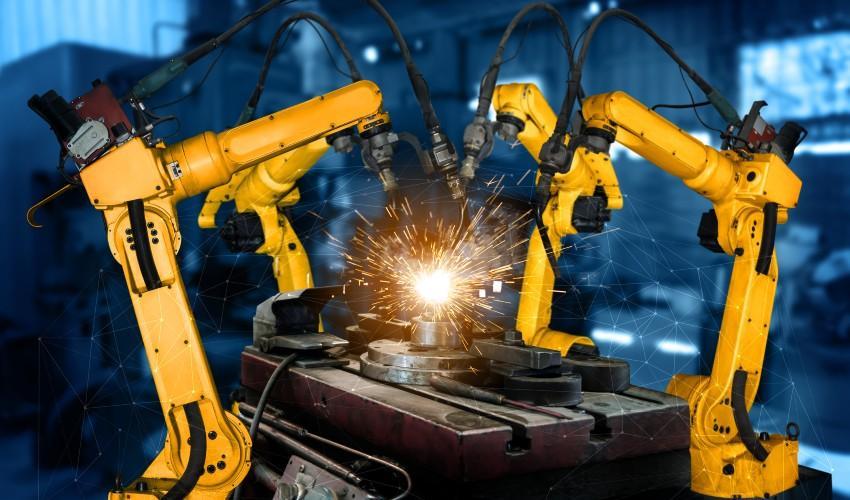
Robots in Europe Vote for the Radical Right
THREE BOCCONI PROFESSORS, IN A PAPER NEWLY PUBLISHED IN PNAS, FIND ANOTHER PIECE OF EVIDENCE ON THE EFFECTS OF ECONOMIC DISTRESS ON THE RISE OF POPULIST PARTIES. VOTERS REACT TO AUTOMATION IN THE SAME WAY THEY REACT TO GLOBALIZATION AND TO IMPORT COMPETITION FROM CHINAIn a new paper published in the Proceedings of the National Academy of Sciences, Bocconi Professors Massimo Anelli, Italo Colantone, and Piero Stanig show that exposure to automation led to an increase in support for radical-right parties in Western European countries between the late 1990s and 2016.
They find that individuals that, due to their characteristics and to those of the labor market in which they are inserted, are more exposed to the automation shock are significantly more likely to vote for a radical right party.
The observed difference in vote for the radical right between individuals at the 25th percentile in terms of exposure to automation, and individuals at the 75th percentile is 3.5 percentage points – a very strong effect if we consider that the average support for the radical right in the sample is around 5%.

Infographic by Weiwei Chen
In regions with an average difference between high- and low- exposure individuals, such as Lombardy (Italy) in 2006, persons with the highest and the lowest automation exposure are expected to differ by more than 3 percentage points in their probability of supporting a radical right party. Where the industrial composition and the pace of robot adoption induce larger differences in exposure across individuals (for instance, the North region of France in 2002, one of the most unequal/polarized in terms of exposure) the gap rises to up to 6.5 points.
In addition, the authors document that individual exposure to the automation shock leads to poorer perceived economic conditions, lower likelihood of having a permanent contract, and lower satisfaction with the government and democracy. Importantly, the relationship between vulnerability to automation on the labor market and support for the radical right is estimated net of the effects of other known correlates of support for this type of party, such as opposition to immigration, traditionalism, or perception of a threat to one’s social status.
The authors use data from the European Social Survey and the EU Labor Force Survey. They propose a measure of exposure to robot adoption that combines several pieces of information: the occupational composition of labor markets in European regions prior to the recent surge of robotization; measures of the automatability of each occupation; the skill level of individuals; their demographic characteristics; and the pace of robot adoption in a given country at a given point in time.
Professors Colantone and Stanig previously studied the rise of economic nationalism in Europe and had so far highlighted the role played by globalization and import competition. With this paper, they shed light on an additional explanatory factor in the recent success of nationalist and radical-right parties in Europe: robot adoption.
As highlighted by Prof. Colantone, although globalization and automation “increase economic growth and contribute to the progress of our economy and society, these are facets of structural change that determine distributional consequences: put simply, winners and losers. This generates a political backlash. In particular, our studies show that the losers of globalization and automation tend to display similar reactions in terms of voting.”
Yet, when it comes to automation Prof. Colantone sees a silver lining. Indeed, while import competition from emerging markets led to the decline of entire industrial districts, automation has helped firms to develop: “Firms that are adopting robots are the dynamic firms, they are successful, so at least in principle they are producing resources that can be used to finance redistribution policies and the restructuring of regional economies. So, we can be optimistic in that sense.”
Massimo Anelli, Italo Colantone, and Piero Stanig. “Individual Vulnerability to Industrial Robot Adoption Increases Support for the Radical Right.” Proceedings of the National Academy of Sciences Nov 2021, 118 (47) e2111611118; DOI: 10.1073/pnas.2111611118.
Italo Colantone and Piero Stanig. “The trade origins of economic nationalism: Import competition and voting behavior in Western Europe.” American Journal of Political Science 62.4: 936-953, DOI: 10.1111/ajps.12358.
Italo Colantone and Piero Stanig. “Global Competition and Brexit.” American Political Science Review 112.2: 201-218, DOI: 10.1017/S0003055417000685.
by Ezio Renda
